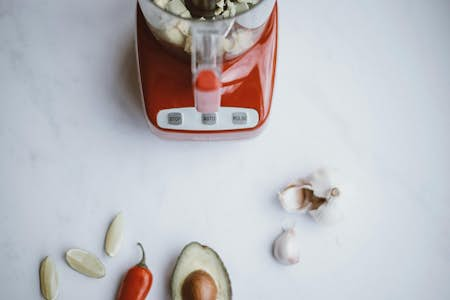Suffering from urinary tract infections (UTIs) on a regular basis? They can be terribly irritating and, in some cases, extremely painful. But when the pain is gone, you might want to know if you can have sex again, so can you?
Well, there is no one hard rule about this. However, most doctors recommend that you don’t have it until you’ve finished a course of antibiotics or the infection is completely gone on its own and you are symptom-free for a couple of days. This is because having sex can cause a secondary infection. It might also irritate your bladder, leading to discomfort while you’re having an infection.
Bladder infections aren’t contagious, so your partner won’t get infected by having sex with you.
Of course, rather than worrying about whether or not to have sex when having a UTI, it’s best to prevent them in the first place. So let’s have a look at what causes UTIs and how we can do our best to avoid them.
Whether you're looking for the latest vitamins and supplements, want to stock up on over the counter medication, or are looking for a digital solution for your regular prescription, our providers have you covered. Compare brands below and click on your favourite to shop their best offers now!
Why do we get UTIs?
Both men and women get UTIs when bacteria travels up the urethra and into the bladder. Usually, it’s the E. coli bacteria causing the UTI. E. coli lives naturally in your anus where it causes no harm, but when it gets into your bladder, it can cause an infection.
While there are different kinds of UTIs, the most common is known as cystitis, and the term is often used interchangeably with UTIs.
Why do women get more UTIs?
Women are up to 30 times more likely to get a urinary tract infection than men. This is because women have a shorter urethra (that’s the canal that carries pee from your bladder to outside your body). That means that bacteria have to travel a shorter route to get to the bladder.
The urethra of women is also closer to the anus, and if bacteria from the anus gets into the urethral opening, it can lead to a urinary tract infection. This is why women are advised to wipe themselves from front to back after peeing and one of the reasons that you shouldn’t touch the anus and then other parts of the vagina during sex.
Men have fewer UTIs because the antibacterial properties of prostatic fluid help prevent bladder infections.
Women prone to yeast infections might also be more prone to UTIs. However, it’s important to note that a UTI is not a yeast infection but rather a bacterial infection. The reason a yeast infection might be contributing factor to contracting a UTI is because it disrupts the bacteria in the vagina. It’s then easier for bacteria to take root and transfer to the bladder.
What causes UTIs?
There are various risk factors for UTIs as well as direct causes.
One cause of UTIs is sexual intercourse. The reason sexual intercourse can cause UTIs is that the urethral opening is exposed to more bacteria if you or your partner rub that area. If you’re having sex with a new partner, the risk of contracting a UTI increases as you’re exposed to new bacteria.
Anal sex can also increase the risk of contracting a UTI if bacteria from your or your partner’s anus contact the urethral opening and enter the urethra.
Likewise, if sex toys come into contact with the anus and then touch the urethral opening, it can cause UTIs. Dirty sex toys are another cause of UTIs, so be sure always to clean them as directed by the manufacturer.
For women, anything that upsets the good bacteria in the vagina can contribute to UTIs. The good bacteria normally “kill off” the bad bacteria, so if it gets disturbed, the chances of getting a UTI increases. Things that might disrupt the good bacteria include:
- Vaginal douching
- The use of spermicides (they can upset the healthy bacteria in the vagina, so you might want to consider other types of contraception)
- Taking bubble baths
- Using fragrance in and around your genital area (such as pads with fragrance)
- Having your period and using pads or tampons that dry out your vaginal area (a bit of coconut oil can help prevent this, granted you aren’t allergic to coconut oil)
- Pregnancy
- Menopause (an estrogen cream for the vagina might help correct this)
Not peeing enough or not emptying your bladder properly can also cause urinary tract infections. In other words, you need to stay hydrated to flush out your bladder. Women using a diaphragm find it harder to empty their bladder, which puts them at risk. The same problem affects men with an enlarged prostate—it’s hard for them to push out all the urine.
An enlarged prostate only affects men, usually as they age. However, older women can also find it difficult to empty their bladder properly as they age. This is because the muscles in our pelvic floor and bladder weaken as we grow older. This can, in addition to causing urinary retention, also cause incontinence leading to the need for pads or diapers, which, in turn, increases the risk of UTIs.
Cleveland Clinic reports, "For women over age 65, the incidence rate of UTIs is over 10 per cent. The incidence rate increases to almost 30 per cent for women over age 85. However, these statistics don’t consider the rate of UTI misdiagnosis in hospitalized older adults, which may be as high as 40 per cent.”
Lastly, using a urinary catheter can lead to increased UTIs.
How do you know you have a UTI?
A bladder infection usually leads to one or more of the following symptoms:
- A burning sensation when peeing (can also be an itching sensation)
- Pain in the bladder area (pain in the lower abdomen or pelvic pain) or back pain
- A need to pee more often than usual, or a sudden need to pee desperately
- Blood in the urine
- Fever
- Foul-smelling or cloudy urine (granted, you haven’t been eating asparagus, which also makes your urine smell!)
- Problems urinating
Not all bladder infections cause symptoms and are likely to go away on their own. Older women in particular, often suffer from asymptomatic bacteriuria. This is when you don’t get any symptoms but have increased bacteria in your urine. This does not need to be treated by antibiotics, but rather, try drinking more water or herbal tea to flush out the system.
Diagnosing a UTI
A doctor can easily check for a urinary tract infection by doing a urinary test. You might also want them to do a culture to rule out other conditions, such as internal cystitis.
Note that some symptoms of a UTI mimic the symptoms of STIs (such as those of chlamydia). If you experience pain, itching in your genital area, or vaginal discharge, you should see a gynaecologist to rule out the potential of STIs. Likewise, if you get frequently get UTIs after sex, you might want to pay a visit to an ob-gyn.
Treating UTIs
A UTI treatment usually only includes one thing: antibiotics. Antibiotics will kill off the harmful bacteria in your urinary system. To restore healthy bacteria, doctors usually also recommend you take probiotics after finishing a course of antibiotics.
Some infections might be resistant to certain antibiotics. If your infection does not go away properly after finishing a course of prescribed antibiotics, you need to see a doctor again immediately. An untreated UTI can lead to a kidney infection.
With that being said, not all UTIs require antibiotics—sometimes, you can flush them out. It’s always best to seek medical advice if you suspect having a UTI.
Preventing UTIs
There are several things you can do to help prevent UTIs. Staying hydrated is the first and possibly most important thing. Drinking plenty of water or herbal tea (nothing caffeinated or sweetened) will help flush out bacteria in your bladder before it takes root.
Furthermore, consider drinking unsweetened cranberry juice or cranberry juice sweetened with stevia (sugar causes bacteria to grow). Cranberry juice is recommended because it can help prevent bacteria from taking hold in your bladder. The supplement D-Mannose has a similar effect and is also recommended by some health professionals.
On the topic of supplements, probiotics help increase the healthy bacteria in your body and therefore fight off bacteria that cause UTIs. However, research on whether probiotics specifically help with UTIs is still undetermined.
While there are rumours online that a home remedy consisting of one or two teaspoons of baking soda dissolved in a glass of water can prevent/cure UTIs, this is incorrect.
When it comes to sex, you can prevent UTIs by avoiding the following:
- Touching the anus and then your or your partner’s genitals during sex—wash your hands first
- Using sex toys in the anus and then on/in the vagina or penis before washing them
- Having sex in a hot tub (and, for that matter, long hot baths as the bacteria in the water might enter your urethra or vagina)
- Diaphragms (they make it difficult to empty your bladder, so consider another form of contraception)
- Spermicides (they disrupt the bacteria in the vagina)
There are myths that oral sex increases the risk of UTIs, or by not having penetrative sex/vaginal intercourse, you can avoid UTIs, but none of this has been proven. It is proven that bacteria from your anus can cause UTIs if it comes in contact with your urethra. Therefore, always wash anything that comes in touch with your anus before letting it touch other parts of your genitals.
Combating recurrent UTIs
It might seem hopeless if you are already doing everything you can to prevent UTIs but are still getting them. However, there are things you can do to improve your overall immune system, which might help you combat UTIs.
Some things that help improve our immune system might seem obvious—eat well (an anti-inflammatory diet) and exercise. Other things might not be as obvious. For example, did you know that spending time outdoors in nature can help improve your immune system? Various studies have proven this.
Decreasing stress can also improve your immune system, as can being social and doing things you enjoy. Perhaps not the first things you associate with your immune system!
You will also want to get enough sleep at regular times. Getting eight hours of sleep a night is crucial, but if you go to bed at ten one night and twelve the next, you upset your circadian rhythm. This, in turn, affects your immune system.
Other things to consider include taking multivitamins, herbal supplements, and probiotics. Always consult a medical professional first.
While few studies have yet been done to solidify the link between the mind and the body, some people have successfully healed themselves using various so-called healing techniques. If you have an interest in alternative therapies, this is something worth looking into.









